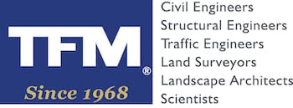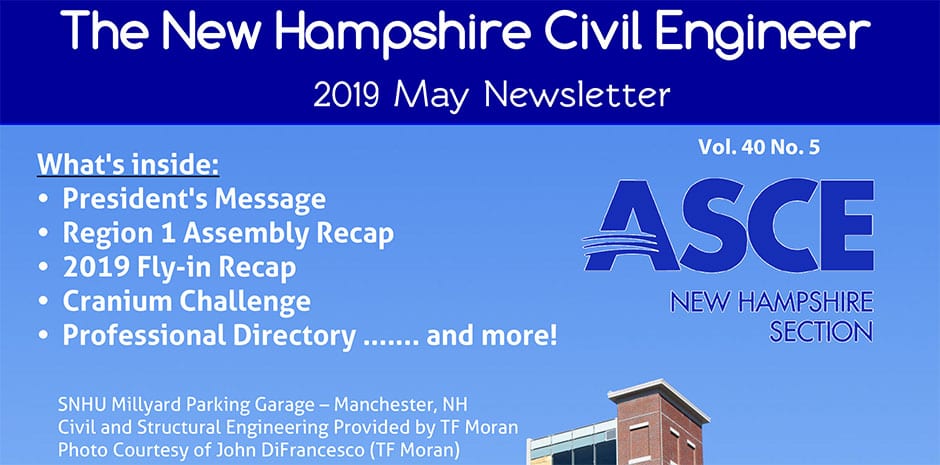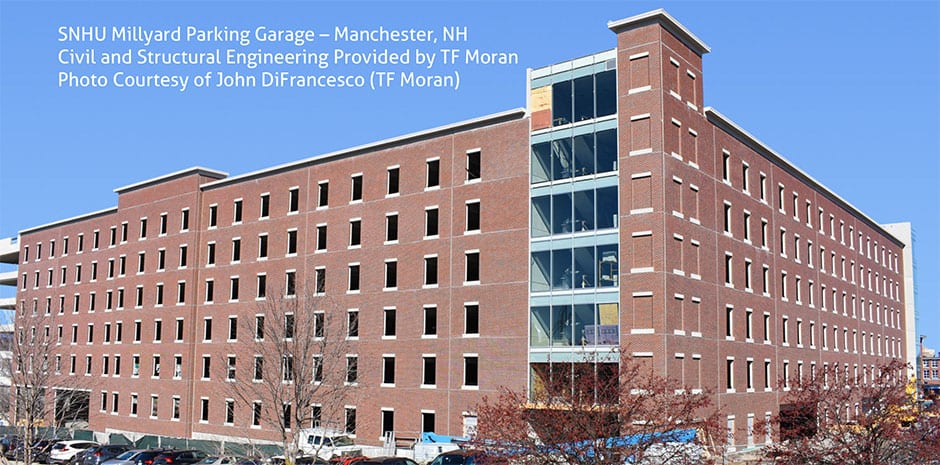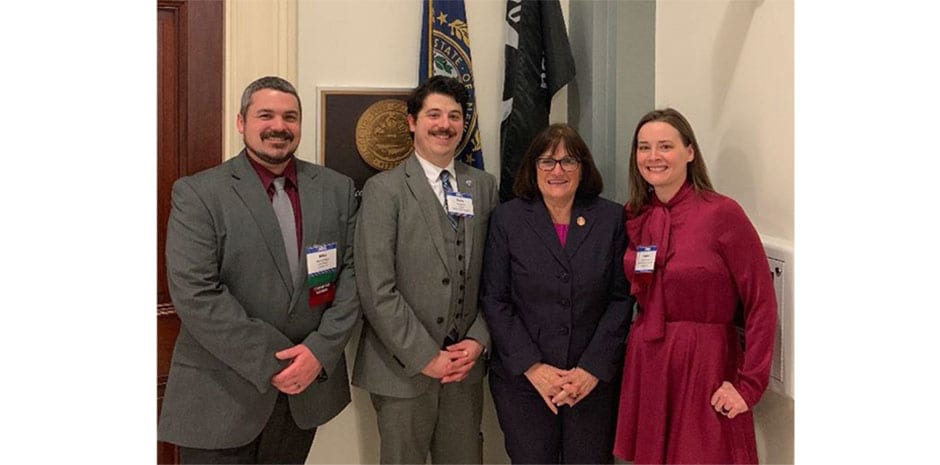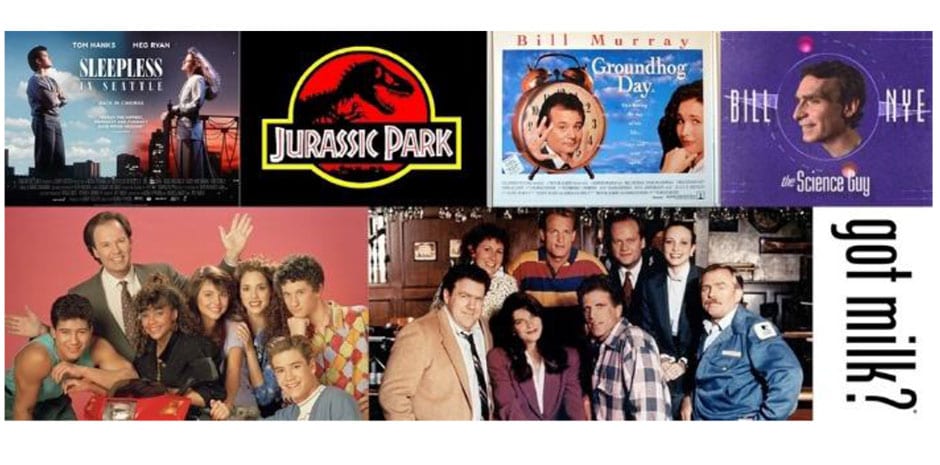American Society of Civil Engineers New Hampshire Section’s newsletter featured a TFMoran civil and structural engineering project on the May 2019 cover, Southern New Hampshire University’s millyard parking garage in downtown Manchester. This 6-story, 1,700-car parking garage is currently under construction along the Merrimack River near the Fisher Cats stadium. It will provide parking for SNHU’s on-line program staff and administrative offices housed in the adjacent Langer mill building. The parking garage is being built by Harvey Construction and is ahead of schedule for completion.
ASCE NH Section’s May 2019 newsletter The New Hampshire Civil Engineer features a story entitled “2019 Legislative Fly-In” by Nicholas Golon, PE. Nick is one of TFMoran’s Senior Project Managers, as well as Treasurer of ASCE-NH Section. He was one of three engineers representing New Hampshire who traveled to DC to meet with NH representatives. Click this link ASCE NH May 2019 Newsletter – Legislative Fly-In to view the story, or read the text below:
2019 Legislative Fly-In
By Nicholas Golon, PE
Every spring, ASCE holds its Legislative Fly-In Program in Washington, DC, an intensive two-day program that provides participants with an inside look at the public policy process. This year ASCE members from all 50 states and Puerto Rico brought their message to over 310 Members of Congress on Wednesday March 13th, advocating for a variety of infrastructure solutions at the annual Legislative Fly- In. This year’s New Hampshire delegation was made up of President Logan Johnson, President-Elect Mike Bogue, and Treasurer, Nick Golon, shown below with NH U.S. Representative, Annie Kuster.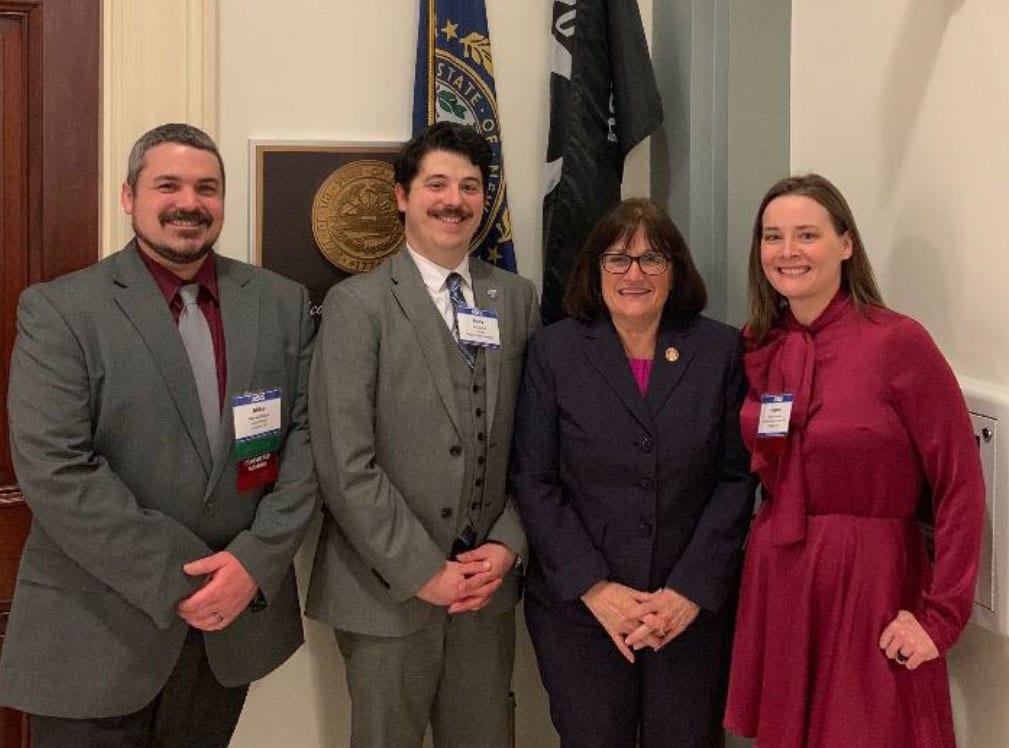
The NH delegation expressed to our elected officials and their staff a core ASCE belief that all infrastructure programs, and projects supported by infrastructure investment legislation, need to meet the following fundamental criteria:
- Investments must provide substantial, longterm benefits to the public and the economy;
- The cost of a project over its entire life span – including designing, building, operating, and maintaining the infrastructure – must be taken into account
- Projects should be built sustainably and resiliently;
- Federal investment should leverage state, local, and private investment, not replace these other critical sources of infrastructure funding.
Although the principles for infrastructure Investment was an important issue, perhaps the most vital message brought forth to Capital Hill by the ASCE membership was the advocacy argument for fixing the Highway Trust Fund (HTF). The HTF is the main funding source for the federal government’s investments in highway and transit infrastructure. The HTF is primarily funded through the federal motor fuels tax, or gas tax, of 18.4 cents per gallon on gasoline and 24.4 cents per gallon on diesel. Although the federal gas tax is the main source for the Highway Trust Fund, Congress hasn’t raised the gas tax since Tom Hanks and Meg Ryan were “Sleepless in Seattle”, Bill Murray was trapped in “Groundhog Day”, “Cheers” aired its series finale, and Bill Nye began his fame as the Science Guy. If the references don’t do anything for you, it was 1993!
ASCE members strongly urged Congress to fix the HTF to provide long-term stability and modernize our nation’s roads, bridges, and transit systems for the 21st century. To address the surface transportation funding shortfall, and chronic underinvestment, ASCE supports raising the motor fuels user tax by 5 cents per gallon for the next five years and indexing it to inflation.
As one ASCE member remarked to NH Congressmen Chris Pappas, “You want to get out of the hole? First, you’re going to have to put down the shovel.” Yes, this is quote was attributed to one of their kid’s favorite movies, Incredibles 2, but the lesson parallels the infrastructure investment gap and raising the gas tax is the equivalent of the first necessary step, putting down the shovel. Failing to close the infrastructure investment gap means higher costs for businesses to manufacture and distribute goods and provide services. In turn, these higher costs get passed along to workers and families.
Learn more about the Highway Trust Fund at www.FIxTheTrustFund.org
